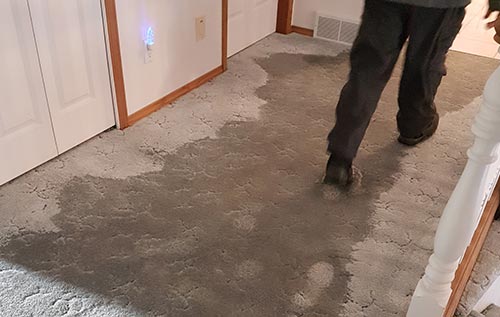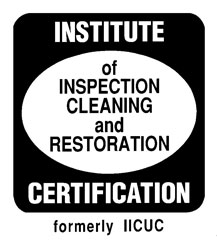Water is meant to be in your home in a controlled manner – in pipes, sinks, drains, etc – but certainly not running unabated. Even a small amount of water can cause a lot of damage in a short time. Slow leaks can wreak havoc – rotting drywall, causing mould, even weakening the structural integrity of beams or joists.
Water damage is costly to repair, so here are some tips on preventing water damage issues before they become a problem.
- Downspouts – should bring water AWAY from your home, especially during times of heavy rain. This is so that water doesn’t run down the side of your foundation and seep into any cracks, or holes that may have formed over years. By simply moving downspouts you can reduce a lot of moisture that has potential for entering your basement.
- Windows & Doors – should be properly caulked to prevent leaks while they are installed. Over the years they may need to be re-caulked in order to prevent moisture from entering the house and rotting out your window or door frame. Remember water on the outside is good, but once water starts to get through to the wood that forms the structure of your home. You’re going to see rotting, which can be very costly to replace.
- Exterior Soil Grade – Grading the soil around your home’s foundation is another positive way to discourage water from seeping into your basement from cracks in your foundation. Just like with moving your downspouts, if we can encourage water to flow further away from our homes, then we’re less likely to see water seeping into our basement. A good option for grading the ground around your house so water doesn’t seep in and flood your basement is clay, it packs tightly and absorbs less water so it’s harder for water to get through and cause flooding.
- Roof – Check for loose, broken or missing shingles regularly. While shingles are meant to last quite a long time, improperly installed shingles or extreme weather can be a cause for concern, especially if those shingles start to allow water to seep through to your attic. If you have a severe problem where water is leaking in regularly, without time to evaporate, it can easily soak into your insulation causing it to become very heavy and collapse the drywall underneath supporting it.
- Gutters – downspouts can’t help if your gutters are clogged with leaves/debris/ice – clean your gutter seasonally to ensure that you have a good clean flow from one end of your house to the other and that downspouts are clear so you can direct water away from your home.
- Interior Drains – make sure drains don’t leak into cabinets under the sink. Clean regularly and never pour grease down the drain. Use strainer on showers/tubs. Like we said before uncontrolled water inside your home is a recipe for disaster. Over even a short period of time, dripping water, clogged pipes, and what may seem like little annoyances can turn into big problems costing thousands of dollars to repair.
- Like for example a client in Osoyoos whose outdoor pool drained in through their internal plumbing, but because of a clogged pipe ended up overflowing the utility sink and flooded their basement with 12 inches of water while they stepped out to get groceries.
- Monitor Water Usage – if your bill spikes out of the norm and you weren’t watering your lawn, you may have a leak. You may also want to turn your water off if you are leaving for an extended period of time. Even if you’re leaving for a few days it may be wise to shut off the main tap to your home. It can usually be found in your basement, or on the main floor where water from the city comes into your home.
- We have had many clients who have experienced a burst pipe while they were away for the weekend. Coming home to water pouring out of their doors, due to a flooded basement. A broken toilet, or old Poly B piping can burst causing a whole lot of damage over a very short period of time.
- Never leave the house with dishwasher/washing machine running. You never know if one of these appliances are going to break down causing water to come pouring out.
- Know where your main water shut off valve is. Similar to number 7, you should know where your main shut off is so that if you do experience a major leak, a pipe bursting, or an internal flood you can quickly shut water off to your home preventing a lot of damage, and a huge loss.
- Store off-season items in waterproof totes if stored in a basement or attic. Protect your possessions in storage by storing them off the floor and on shelves. While this won’t prevent flooding, it can prevent water damage and mould from exposure to water. This is more a way of protecting items – particularly in basements, and storage areas – where we are likely to keep things stacked on top of each other. If you have excess water coming into your home, a sewer backup, or pipes burst, these items can be very costly to decontaminate, and may simply be destroyed when they come into contact with water.



Hi, this is a comment.
To get started with moderating, editing, and deleting comments, please visit the Comments screen in the dashboard.
Commenter avatars come from Gravatar.